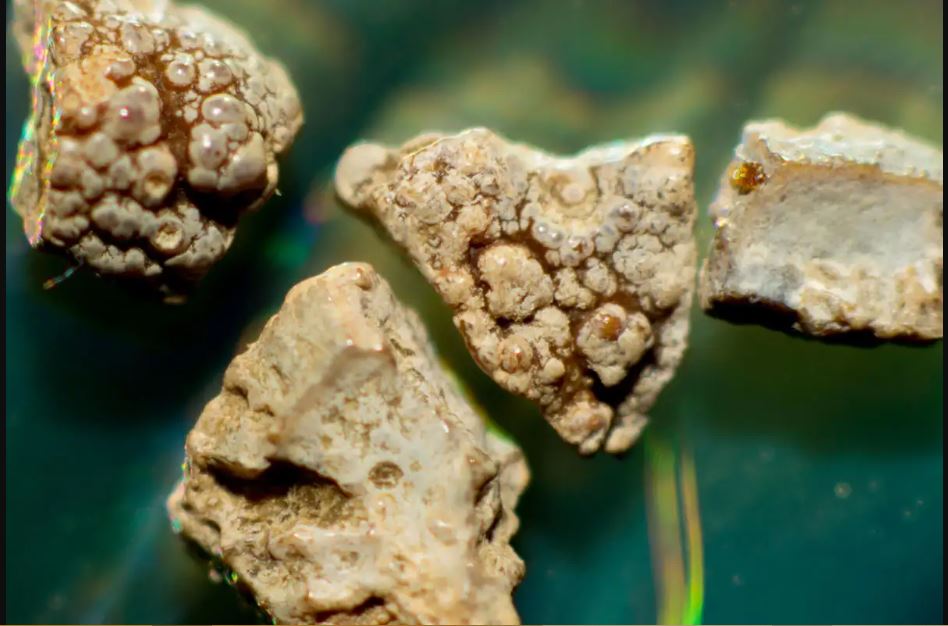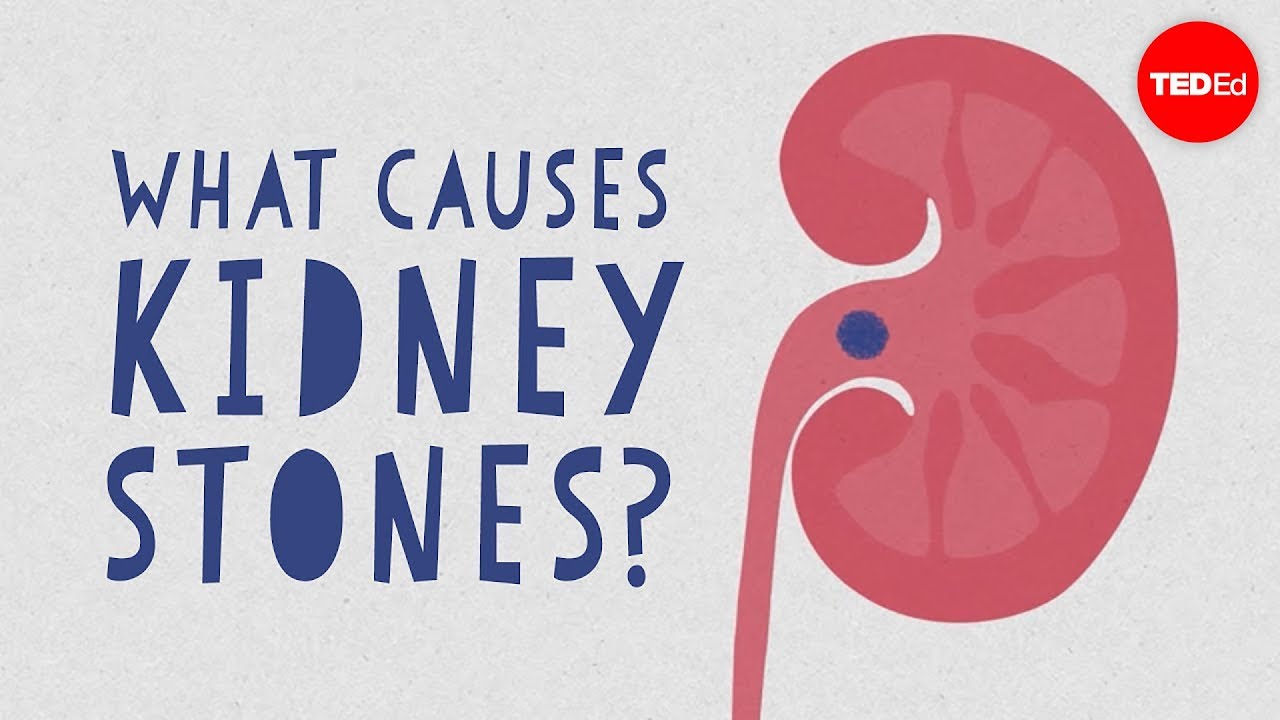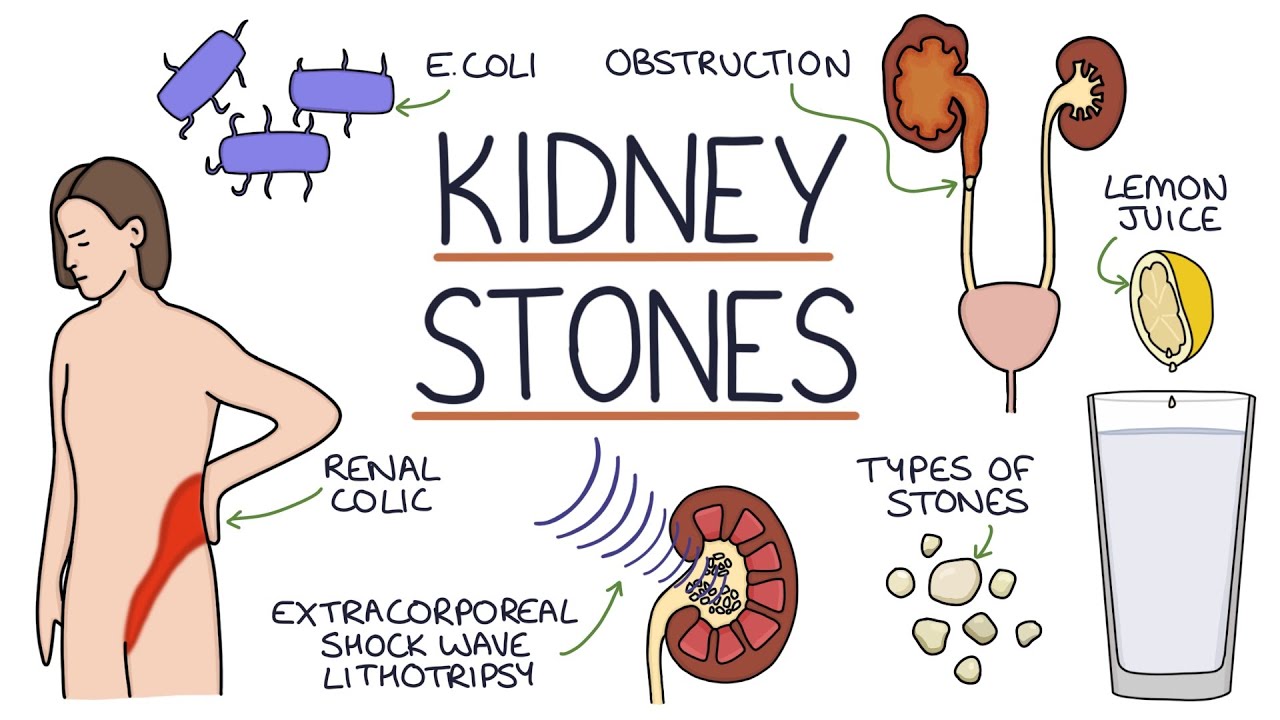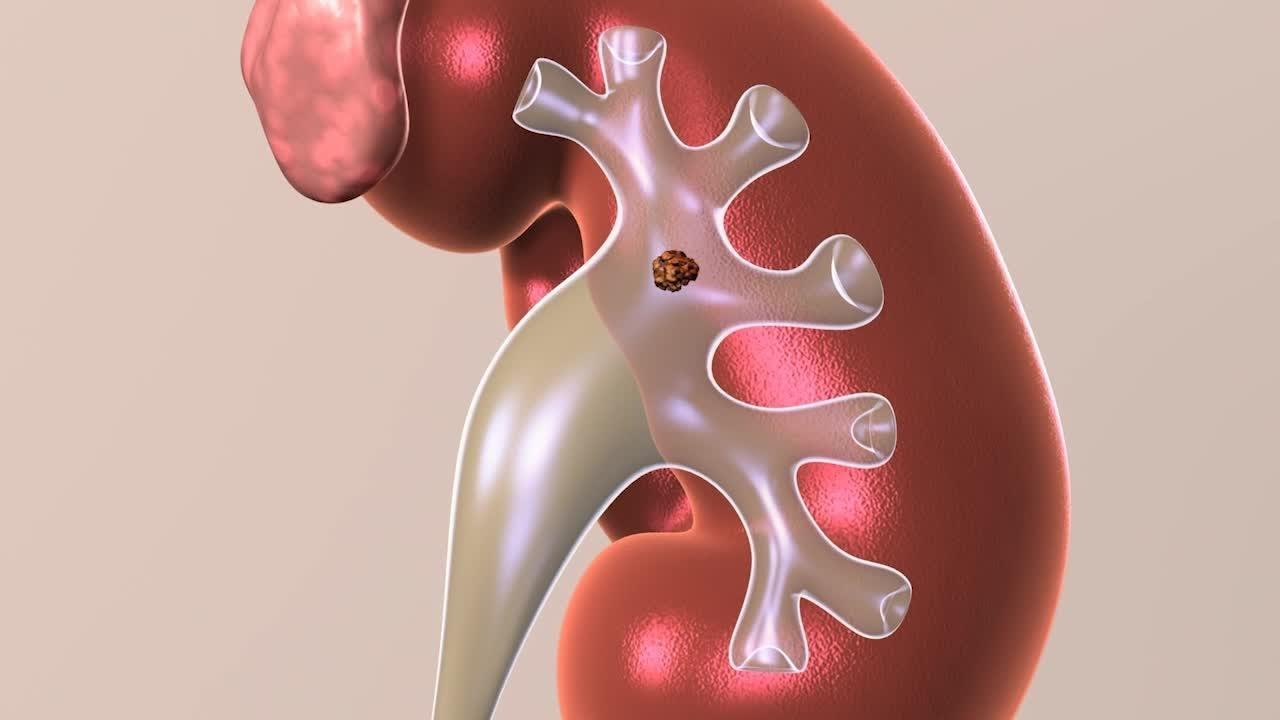Kidney Stones - Causes, Symptoms, And Treatments
Kidney stones are very frequent; even if you've never had one yourself, it's probable that you know someone who has. The likelihood of developing kidney stones can also be raised by conditions such as high blood pressure, diabetes, and obesity.
Author:Suleman ShahReviewer:Han JuJan 22, 20235 Shares700 Views

Kidney stonesare very frequent; even if you've never had one yourself, it's probable that you know someone who has.
In the United States, one out of every 11 persons will get kidney stones in their lifetime.
By the time they reach the age of 70, approximately 19% of men and 9% of women in the United States will have experienced the pain and discomfort of a kidney stone.
The likelihood of developing kidney stones can also be raised by conditions such as high blood pressure, diabetes, and obesity.
An Overview Of Kidney Stone
Renal calculi, more commonly known as kidney stones, are mineral deposits that solidify in the kidneys and can be painful to evacuate. When diagnosed and treated quickly, kidney stones seldom cause long-term complications.
Drinking lots of water and waiting for the stone to pass on its own may be recommended if it is little enough, but further methods may be necessary if it is large. Nephrolithiasis and urolithiasis, two medical termsfor kidney stone illness, are mostly used by physicians.

What causes kidney stones? - Arash Shadman
Types Of Kidney Stone
Multiple distinct kidney stones exist. Different populations are disproportionately affected by each of the five kinds, which are distinguished by their underlying causes.
Calcium Oxalate
This is the most frequent form, which is brought on by high levels of calcium or oxalate in the urine. When this takes place, the compounds have the potential to assemble themselves into crystals.
Calcium Phosphate
These stones are the outcome of an elevated pH level in the urinary system (meaning the urine is alkaline rather than acidic). This leads to an increase in the amount of calcium phosphatepresent in the urine, which in turn encourages the development of crystals. These types of stones are frequently the result of metabolic problems or drugs that affect the pH of the urinary system.
Cystine
These stones are the result of a very uncommon hereditary condition known as cystinuria, which results in the excessive production of a substance known as cystine. Because of the excessive production, cystine may seep into the urine, which can lead to recurring stone formation.
Struvite
Urinary tract infections (UTIs) are the primary risk factor for developing these stones. The creation of struvite crystals, which are made up of magnesium, ammonium, and phosphate, can be caused when the urine pH is raised as a result of the production of ammonia in response to UTIs.
Uric Acid
The presence of an excessive amount of uric acid in the urine might lead to the formation of this type of stone. Uric acid is a waste product that normally moves through the kidneys without much difficulty but can crystallize if the amounts are high enough.
Causes Of Kidney Stone
The kidneys filter the blood and remove excess water and waste chemicals to produce urine. Urine travels from each kidney down the tube (the ureter) draining urine from the kidney into the bladder. This is called the urinary tract.
Many waste chemicals are dissolved in the urine. The chemicals sometimes form tiny crystals in the urine which clump together to form a small stone. Most kidney stones are small and pass out with urine. Some stones become stuck in a kidney or in the ureter.
In most cases, there is no known reason why a stone is formed. Most stones are made of calcium. However, in most cases, the amount of calcium and other chemicals in the urine and blood is normal.

Understanding Kidney Stones
Symptoms Of Kidney Stone
For some people, a kidney stone may just stay in a kidney and cause no symptoms. Other kidney stones may travel out of your body in your urine without you knowing anything about it. If kidney stone symptoms do occur, they include:
Pain From A Kidney
A stone that is stuck in a kidney may cause pain in the side of your abdomen (loin). This pain can be very severe and cause you to feel sweaty and sick (vomit).
Renal Colic
This is a severe pain that is caused by a stone that passes into the tube (the ureter) draining urine from the kidney. The stone becomes stuck. The ureter squeezes the stone towards the bladder, which causes intense pain in the side of your tummy (abdomen).
The pain caused by renal colic may last from a few minutes to a few hours. The pain comes in spasms and between these spasms, there may be intervals of no pain or just a dull ache.
The pain may spread down into the lower abdomen or groin. You may sweat, feel sick or even vomit because the pain can be very bad.
Blood In The Urine
You may see blood in your urine (the urine turns red). This is caused by a stone rubbing against the inside of your ureter.
Urine Infection
Urine infections are more common in people with kidney stones. Urine infections may cause a high temperature (fever), pain in passing urine (dysuria), and a need to pass urine more often.
Treatment Of Kidney Stone
Kidney stones are treated differently depending on their size and the reason they formed. If the stone is less than 5 millimeters (0.2 inches) in diameter, it will pass on its own in up to 98% of cases. If the stone is between 5 and 10 millimeters (0.2 and 0.4 inches) in diameter, it will pass on its own in about 50% of cases.
Smaller Stones
Smaller stones can sometimes be passed on their own without any medical intervention at all, thus doctors will often advise patients to be patient in these cases. Common examples of this are:
- Lots of fluids: In order to help flush the stone out of the body, you may need to drink as much as 2 to 3 liters of water per day (around 8 to 13 cups).
- Pain killers: It is recommended to use Tylenol (acetaminophen), but over-the-counter NSAIDs like Advil (ibuprofen) or Aleve (naproxen sodium) should be avoided due to their potential to decrease kidney function.
- Alpha-blockers: Alpha-blockers, which are normally prescribed for hypertension, can also be used to relax the ureters, making it simpler to expel a stone. Flomax and Jalyn are two options.
People have reported success with various home cures for easier and more comfortable stone passing. Smaller stones can sometimes be dislodged by ingesting acidic liquids like watered-down lemon juice or apple cider vinegar.

Kidney Stone Treatments
Larger Stones
With larger kidney stones, more drastic measures may be required. They should be removed immediately if they are causing bleeding, are related to a severe infection, or pose a risk to the kidneys. Your doctor may suggest the following treatments depending on the severity, nature, and origin of your condition:
- Extracorporeal shock wave lithotripsy (ESWL): The stones are shattered using a technique that emits high-frequency sound waves. It takes around an hour to complete, and most people prefer to be sedated throughout the process.
- Ureteroscopy: This is done by inserting a thin scope (a ureteroscope) into the urinary tract (the urethra, bladder, and ureter). Under either local or general anesthesia, the stone can be broken up and a stent (a thin tube) inserted to keep the ureter open and aid in healing.
- Percutaneous nephrolithotomy: Under general anesthesia, the surgeon makes a few small incisions in the patient's back and removes the stone with a scope and other specialized devices.
People Also Ask
What Is The Best Thing To Drink If You Have Kidney Stones?
Water is recommended. Fruit juices, lemon-lime sodas, and ginger ale are acceptable alternatives. Get at least 2 liters (or 4 quarts) of fluids into your system every day. Get plenty of fluids in order to produce pale urine.
What Causes Kidney Stones?
Lack of hydration, excessive (or insufficient) physical activity, obesity, surgical weight loss, and excessive intake of salt and sugar are all potential contributors. In certain persons, factors such as infections and family historymay be significant. Increased risk of kidney stones is associated with a high fructose diet.
What Is The Fastest Way To Dissolve A Kidney Stone?
The acetic acid in apple cider vinegar can break down kidney stones. Apple cider vinegar is useful for a number of reasons, including relieving kidney stone discomfort and helping the body eliminate waste products. Furthermore, drinking enough water and lemon juice can aid in flushing the stones and preventing further kidney stone formation.
Conclusion
Despite their prevalence, kidney stones are often avoidable with a few simple lifestyle changes, such as adopting a nutritious diet, drinking plenty of water, and engaging in regular physical activity. However, even the healthiest individual can be put in danger by certain medical disorders.

Suleman Shah
Author
Suleman Shah is a researcher and freelance writer. As a researcher, he has worked with MNS University of Agriculture, Multan (Pakistan) and Texas A & M University (USA). He regularly writes science articles and blogs for science news website immersse.com and open access publishers OA Publishing London and Scientific Times. He loves to keep himself updated on scientific developments and convert these developments into everyday language to update the readers about the developments in the scientific era. His primary research focus is Plant sciences, and he contributed to this field by publishing his research in scientific journals and presenting his work at many Conferences.
Shah graduated from the University of Agriculture Faisalabad (Pakistan) and started his professional carrier with Jaffer Agro Services and later with the Agriculture Department of the Government of Pakistan. His research interest compelled and attracted him to proceed with his carrier in Plant sciences research. So, he started his Ph.D. in Soil Science at MNS University of Agriculture Multan (Pakistan). Later, he started working as a visiting scholar with Texas A&M University (USA).
Shah’s experience with big Open Excess publishers like Springers, Frontiers, MDPI, etc., testified to his belief in Open Access as a barrier-removing mechanism between researchers and the readers of their research. Shah believes that Open Access is revolutionizing the publication process and benefitting research in all fields.

Han Ju
Reviewer
Hello! I'm Han Ju, the heart behind World Wide Journals. My life is a unique tapestry woven from the threads of news, spirituality, and science, enriched by melodies from my guitar. Raised amidst tales of the ancient and the arcane, I developed a keen eye for the stories that truly matter. Through my work, I seek to bridge the seen with the unseen, marrying the rigor of science with the depth of spirituality.
Each article at World Wide Journals is a piece of this ongoing quest, blending analysis with personal reflection. Whether exploring quantum frontiers or strumming chords under the stars, my aim is to inspire and provoke thought, inviting you into a world where every discovery is a note in the grand symphony of existence.
Welcome aboard this journey of insight and exploration, where curiosity leads and music guides.
Latest Articles
Popular Articles